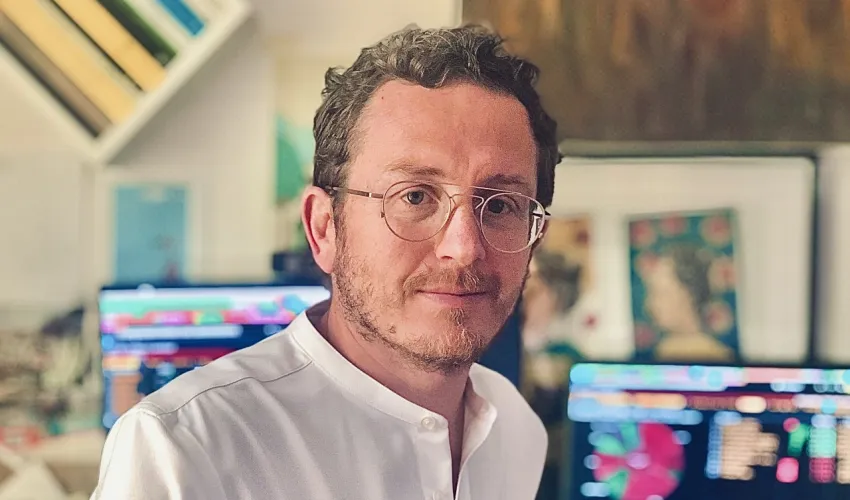
Tommaso: My First 50 Days Covering the Pandemic
Friday, February 21, 1:06am.
The news arrives on our monitors in the middle of the night. A press release from "Lombardia Notizie" announces that a "38-year-old Italian man has tested positive for coronavirus and is hospitalized in intensive care at Codogno hospital."
On the Bloomberg terminal we regard the note on a day when in Piazza Affari attention is still concentrated on Italian banks: the Intesa Sanpaolo offer for UBI and the London temptations of a prominent banker.
Did we realize on Friday morning that we were facing a devastating pandemic? That Italy was going to experience its hardest moment of the last 75 years? No. At least I didn't realize it, not right away.
That day I had planned to work from home to participate in family week at the kindergarten where I was preparing to tell the story of Rodolfo's dad – me, the journalist - and to churn out the first edition of the "Gazzetta della Classe Lilla." Yet within a few hours we slowly beganto understand that the case is not isolated and just before midnight on that same day I found myself writing to the governor of Veneto to confirm the tragic news of the first Italian death.
Almost fifty days have passed and thousands of people have lost their lives. The country is beginning to hope for a "phase two" and Milan is trying to think about the future.
I never went back to the editorial office, same as all the colleagues from Rome and Milan. Strengthened by the experience of our Chinese colleagues, we immediately began to cultivate "work from home". The desk in the bedroom has become my new office, the video calls are our virtual editorial staff. With dozens of countries around the world in quarantine, our work is more important than ever. Investors are looking for Bloomberg News reporters - 2,700 in over 130 countries - accurate, reliable, verified news and an authoritative reading of the facts.
For the first few weeks Milan, in spite of itself, was the epicenter of the western hemisphere. Italy was the first non-Asian country to experience the pandemic, its consequences and experience restrictive measures taken by the authorities. These were intense days in which we had to focus on key data without losing sight of the big picture. Numbers but also emotions, while everything around us seemed to collapse.
We found ourselves writing and speaking on the most disparate platforms, from the pc to Twitter, from Bloomberg TV to the radio. We had no definitive answers to the big questions we all asked ourselves. We sought comfort from experts, virologists and epidemiologists for health issues but also from economists, bankers and top executives for economic and business issues.
Let's try to imagine what the aftermath will look like. We did it in a long portrait, which is also a love letter, on the future of Milan and Italy on bloomberg.com.
Positive energies are circulating. Opportunities that arise from a change imposed by the pandemic. Like the bakery-pizzeria sector that in a few days invented a new business model with home delivery and managed to save 50% of the turnover. Like those companies that have discovered that smart working can become an effective solution even after the emergency. And the global groups that find
a note of comfort in a recovery of orders and production in China at the end of the lock-down. Or those "made in Italy" luxury producers that are witnessing a return of interest of Chinese consumers now that it is overcoming the most critical phase.
A manager in a sweater who made a difference, in his last speech to investors before disappearing into a Swiss hospital, left a leadership test which is worth rereading in Milan in April 2020: "We are and we will be focused on music, the real music, "Sergio Marchionne said to his managers in June 2018." Our approach will be different. Improvisation. Agility. Openness to debate. Humble but with fearlessness, born of humility. Why are we different from everyone? Because we are survivors. "